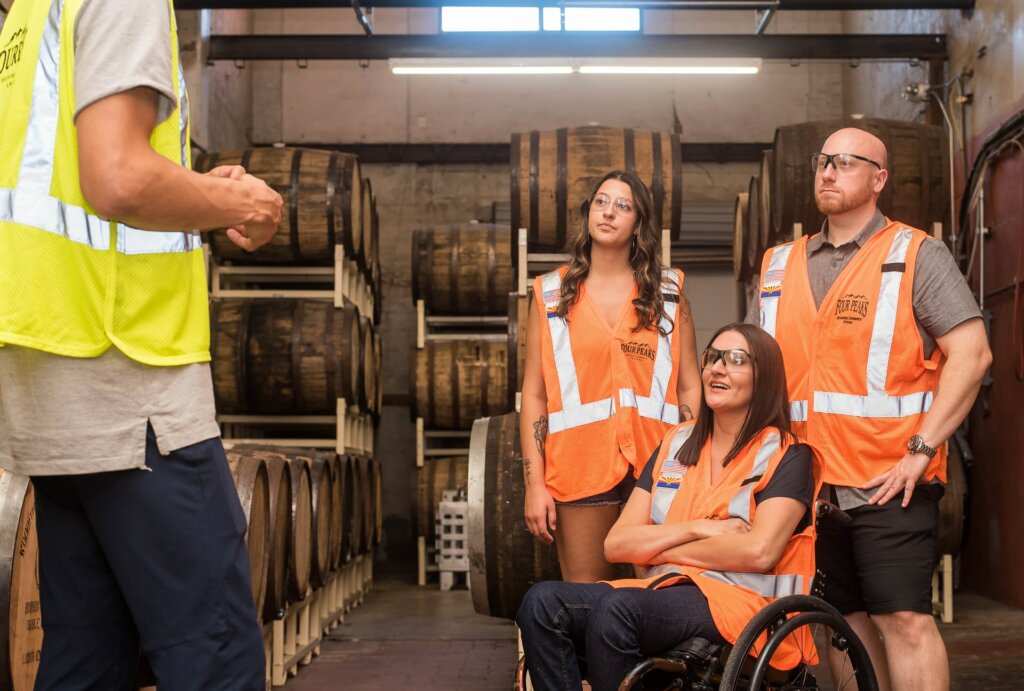How to create an inclusive hiring experience for applicants with disabilities
For people with disabilities, there are barriers to inclusion everywhere. Sometimes they’re physical barriers, like not being able to get into buildings or facilities. But a lot of the time, people with disabilities experience attitudinal, communication, policy, transportation, and social barriers, too.
In the workplace, both of these often exist simultaneously, often without organisations realising they’re there. But creating an inclusive working and hiring experience for people with disabilities isn’t about hiring more people. Instead, it’s about creating an environment where applicants with disabilities of any kind will feel able to thrive, represent themselves at their best, and bring their best to work each day.
In this post, Dr Poornima Luthra, associate professor at Copenhagen Business School, and founder of Talented Consultancy APS, explains how to create an attractive workplace for applicants with disabilities by providing the right accommodations and accessibility needs.
How applicants with disabilities experience the recruitment process
When we think about the term ‘disability’, we often think primarily about people with physical disabilities. But in reality, disability is a very broad term, which can encompass both the physical attributes we can see, and other characteristics we can’t.
“The most important thing is that organisations need to be very intentional about building an inclusive environment for both people with visible disabilities, and those with invisible ones,” Dr Poornima says. “Visible disabilities are disabilities that we can see with our eyes — for example, someone in a wheelchair. But often forgotten, disabilities can also be invisible. These can impact the way we behave, think or learn. Invisible disabilities include amongst others hearing impairment or some aspects of visual impairment, chronic illness or health conditions or conditions like post-traumatic stress disorder.”
In the recruitment process, applicants with disabilities are more likely to experience discrimination and bias than non-disabled peers:
- A 2021 qualitative study found that candidates with disabilities face barriers across the entire hiring process, ranging from inaccessible job adverts and application forms to physical barriers in the interview room.
- A 2021 Norwegian study found that wheelchair users are 48% less likely to be invited to a job interview than non-disabled applicants.
- A 2022 study found that those with disabilities relating to chronic pain were viewed as less employable by organisations, whether they disclosed early or late in the process.
Creating a more inclusive recruitment process for candidates with disabilities
When improving the inclusivity of your hiring recruitment process for folks with disabilities, it’s important to make sure you focus just as much on the accessibility of your process as your office. Application forms, job adverts, and interviews that demand in-person attendance may present barriers for both those with physical disabilities and invisible disabilities alike.
“Having an understanding of both means your organisation can better provide the right access and accommodations,” says Dr. Poornima. “But remember that you can’t always expect people to disclose their status right away. Often when people choose to disclose their disability status in the application process, they don’t get an opportunity to be shortlisted. This can cause candidates to withhold that information until a later stage, meaning they’re not able to access accommodations.”
To create a more inclusive experience for disabled applicants, Dr. Poornima suggests organisations work through their entire end-to-end process and evaluate how an applicant with a sight or hearing impairment, a physical disability, or an invisible disability might experience each stage.
- Check your careers site for any accessibility issues, such as checking screen reader compatibility, and make sure your application form is easy to use.
- Make sure your diversity statement in job adverts explicitly states that you welcome candidates from all backgrounds and all abilities.
- Create structured and objective job advert and evaluation criteria that reflects the must-have skills and competencies for the role.
- Be conscious of your job advert language. Words like ‘energetic’ and ‘capable’ tend to attract non-disabled individuals, discouraging an applicant with a disability who has all the right skills for the role.
- Check your building’s accessibility if inviting candidates into the office for an interview. In addition to physical access to the building and your office floor, make sure your interview room setup and path through the office feels accessible for all.
When it comes to the formal interview, while the evidence is still split on whether or not virtual interviews actually increase accessibility for applicants with disabilities, Dr. Poornima says offering a choice of options is best.
“Companies often want to meet the candidate in their organisational environment, but those processes can be very prone to bias and introducing ‘gut feel’ into the evaluation process,” she says. “Giving candidates different interview options that enable them to represent and express themselves at their best will help level the playing field and allow candidates with disabilities to select the level of accommodation that’s right for them.”
Building a welcoming working environment for everyone
The most attractive workplace is one that feels inclusive to all — whether your applicants have disabilities or not. When building a recruitment process to attract disabled talent, it’s important to focus on the experience of applying to your organisation as a whole — from your job advert and application form right through to getting into the interview room.
Part of your efforts will start with how you communicate. Ready to improve recruitment communication and attract more qualified candidates?
You May Also Like
These Related Stories

Is your job ad pushing away top talent? How to attract disabled professionals

How targeted language can backfire in job descriptions
